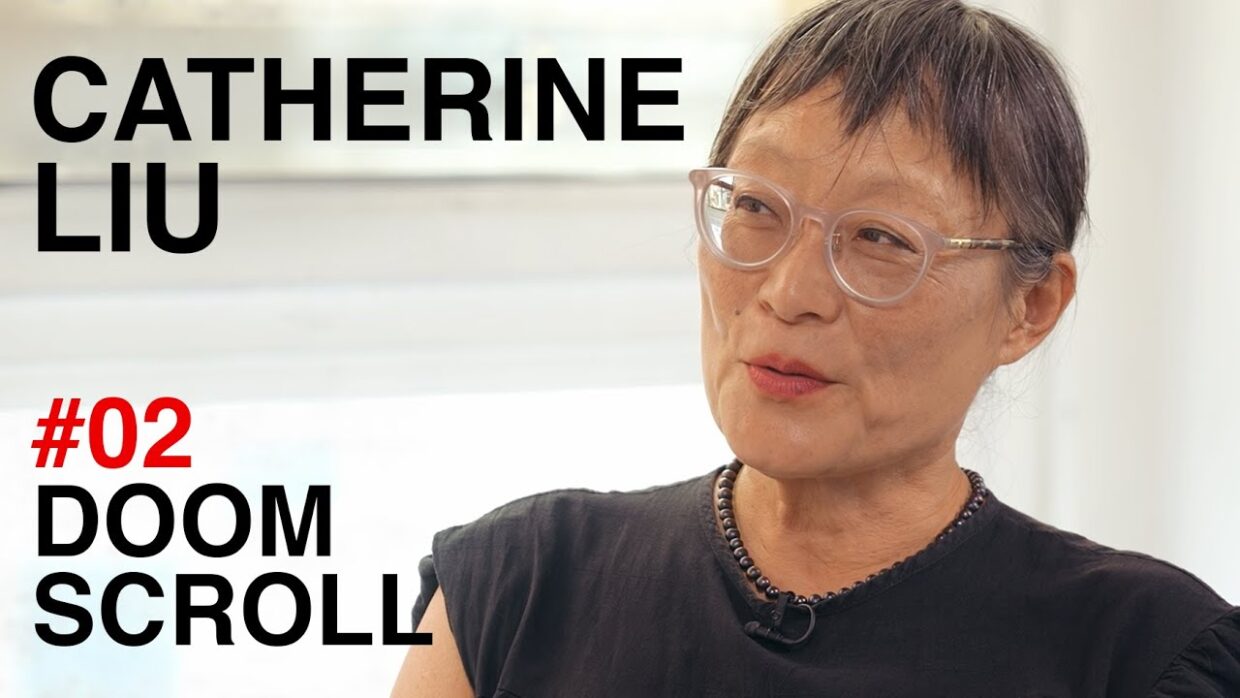 Back to selection
Back to selection
Production Company MEMORY Launches New Doomscroll Political Talk Show Podcast with Joshua Citarella

The latest venture from MEMORY — the 25 New Face-selected production company of producers Sebastian Pardo and Riel Roch-Decter — has kicked up a bit of mainstream attention this week, with TMZ, People Magazine and Daily Telegraph, among others, covering coded comments by The 1975’s Matty Healy on a certain ex. But the project – the Doomscroll political talk show series/podcast hosted by artist and writer Joshua Citarella and featuring Healy as the latest guest — is not another celebrity chat fest but rather a series of long-form discussions on contemporary politics, culture and theory — “‘Lex Fridman for the Left,’ some have called it,” says Roch-Decter.
About the podcast, MEMORY states in a press release, “Doomscroll is focused on political discourse for a younger audience that has grown up online. They have a deep skepticism and suspicion of mainstream media. Doomscroll is a talk show that caters to young listeners who grew up in a crisis paradigm and now seek alternative sources of information.”
In addition to Healy, Doomscroll guests include Brace Belden and Yung Chomsky of the popular TrueAnon podcast, artist Trevor Paglan, YouTubers Jreg and JJ McCullough, and Film and Media Studies/Visual Studies professor at UC Irvine, Catherine Liu. Liu’s episode, embedded above, is a spiky dialogue centering around topics found in her book, Virtue Hoarders: The Case Against the Professional Managerial Class, including the capitalist foot soldiers of the PMC (who, include, truth be told, most of us in the non-profit and media spaces), techno-feudalism, elite capture, and the psychic enclosure of online social-media platforms, which partition dissent into algorithimcally monetizable spaces.
Only two episodes — Liu’s among them — are available as audio podcasts, with the whole series so far streaming on Citarella’s YouTube channel. That’s part of an increasing trend towards video podcasts and use of YouTube to grow audience and monetize content. And while quite a few podcasts on YouTube are just audio with a title card, or a Zoom split-screen, Doomscroll takes advantages of MEMORY’s production expertise to present Citarella’s guests in a pleasing setting that makes sitting down for an hour or two of conversation more inviting.
In response to emailed questions about Doomscroll, Roch-Decter replied in an email:
We wanted to get Josh’s ideas onto another platform beyond the audio podcast but realized fairly quickly that we couldn’t rely on the entertainment world or the documentary space to support that evolution. Simultaneously Josh has built up a following over many years of doing his work, and I think we were all aligned with the idea that at the end of the day the value is in building a direct relationship with audience. YouTube seemed the best fit for that, and so far our thesis seems to be proving itself out based on the quick growth we have had already achieved on the channel in a short amount of time. [Liu’s has over 180,000 views so far, with Healy catching up at 140,000.]
It’s exciting to think and work towards a model of sustainability where we could bring our talk show to an audience and have the ad revenue from the platform cover the costs of the show and our teams work on it. This is nothing new in a way as there have been many successful YouTubers that have built independent empires and, of course, many video podcasts have come before us. But as a way to differentiate ourselves we chose to up the production quality and bring our experience in documentary film to create a distinct look and feel to the show. We needed to stand out in this space and at MEMORY we have always leaned in on quality as the way to do that. We typically don’t have big budgets to work, but we work… to bring out a sense of quality and intention in the work that we do with the resources we have at our disposal. A great deal of that is who we collaborate with on these projects and getting people who get what we are trying to do. We are very excited about future seasons of the show and bringing in other filmmakers as collaborators into this model.
We’ll have more to say on it all, of course, and we are still in the very beginning of this journey, but I am hopeful there is a path of sustainability here that is exciting after so many years giving so much to films that never fully find their audiences for all the reasons that the independent film system is very hard and clearly broken.
Check out Liu’s episode above and the whole series at Citarella’s channel.
